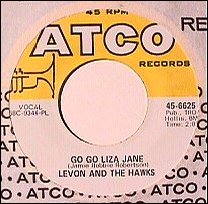
The Band was a Canadian-American rock band formed in Toronto, Ontario, in 1967. It consisted of four Canadians and one American: Rick Danko, Garth Hudson, Richard Manuel, Robbie Robertson, and Levon Helm. The Band combined elements of Americana, folk, rock, jazz, country, and R&B, influencing subsequent musicians such as the Eagles, Elton John, the Grateful Dead, the Flaming Lips, and Wilco.
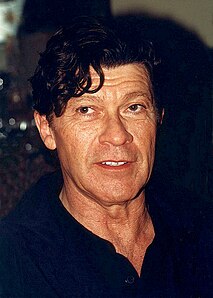
Jaime Royal "Robbie" Robertson, OC, is a Canadian musician, songwriter, film composer, producer, actor, and author. Robertson is best known for his work as lead guitarist and songwriter for The Band, and for his career as a solo recording artist.

Richard Clare Danko was a Canadian musician, bassist, songwriter, and singer, best known as a founding member of the Band.

Mark Lavon "Levon" Helm was an American musician and actor who achieved fame as the drummer and one of the three lead vocalists for The Band. Helm was known for his deeply soulful, country-accented voice, multi-instrumental ability, and creative drumming style, highlighted on many of the Band's recordings, such as "The Weight", "Up on Cripple Creek", and "The Night They Drove Old Dixie Down".
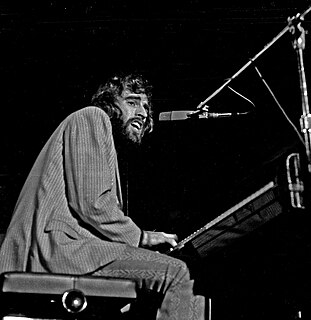
Richard George Manuel was a Canadian composer, singer, and multi-instrumentalist, best known as a pianist and singer in The Band. The five members existed from December 1961 as The Hawks, becoming The Band in 1967, effectively breaking up in 1976, then partially re-formed in 1983. Manuel was with them until his 1986 suicide, a few hours after The Band performed a show.

Eric Garth Hudson is a Canadian multi-instrumentalist best known as the keyboardist and occasional saxophonist for rock group the Band. He was a principal architect of the group's sound, described as "the most brilliant organist in the rock world" by Keyboard magazine. With the deaths of Richard Manuel in 1986, Rick Danko in 1999, and Levon Helm in 2012, Hudson is one of only two living original members of The Band, the other being Robbie Robertson.

"The Stones I Throw " is a single by Levon and the Hawks, released in 1965 on Atco Records. It was their first release under this name, following their previous single under the name Canadian Squires. Seemingly a comment by Robbie Robertson in favor of the Civil Rights Movement, the song is carried by Garth Hudson's organ, and is far less rooted in the heavy R&B stylings of the group's other three single sides. It is the link between their days with Ronnie Hawkins and the group's breakout 1968 LP, Music from Big Pink. In December, 1965 the song reached #22 on the CHUM Chart.
"Uh-Uh-Uh" is the first single by the Canadian Squires, written by guitarist Jaime Robbie Robertson, and produced by independent producer Henry Glover. It was released in 1964 on Ware Records. The song was a standard R&B number akin to what the group, who more frequently used the moniker "Levon and the Hawks", was performing in clubs across Canada and the United States. Sung by pianist Richard Manuel, with backing vocals by drummer Levon Helm, it was backed by "Leave Me Alone", also penned by Robertson.

Across the Great Divide is a box set by Canadian-American rock group the Band. Released in 1994, it consists of two discs of songs from the Band's first seven albums, and a third disc of rarities taken from various studio sessions and live performances. The set is now out of print, having been replaced by the five-CD/one-DVD box set A Musical History that was released in September 2005.
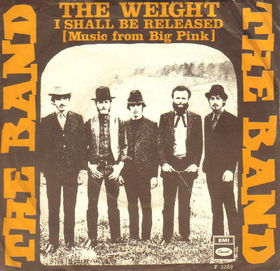
"The Weight" is an original song by the Canadian-American group the Band that was released as a single in 1968 and on the group's debut album Music from Big Pink. It was their first release under this name, after their previous releases as Canadian Squires and Levon and the Hawks. Written by Band member Robbie Robertson, the song is about a visitor's experiences in a town mentioned in the lyric's first line as Nazareth. "The Weight" has significantly influenced American popular music, having been listed as No. 41 on Rolling Stone's 500 Greatest Songs of All Time published in 2004. Pitchfork Media named it the 13th best song of the Sixties, and the Rock and Roll Hall of Fame named it one of the 500 Songs that Shaped Rock and Roll. PBS, which broadcast performances of the song in Ramble at the Ryman (2011), Austin City Limits (2012), and Quick Hits (2012), describes it as "a masterpiece of Biblical allusions, enigmatic lines and iconic characters" and notes its enduring popularity as "an essential part of the American songbook."
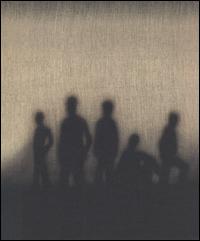
A Musical History is the second box set to anthologize Canadian-American rock group The Band. Released by Capitol Records on September 27, 2005, it features 111 tracks spread over five compact discs and one DVD. Roughly spanning the group's journey from 1961 to 1977, from their days behind Ronnie Hawkins and Bob Dylan through the departure of Robbie Robertson and the first disbanding of the group. The set includes highlights from each of the group's first seven studio albums and both major live recordings and nearly forty rare or previously unreleased performances.
The Revols was a Canadian band from Stratford, Ontario, Canada, formed in 1957, with Richard Manuel on piano and vocals, John Till on guitar, Ken Kalmusky on bass, Doug Rhodes on vocals and Jim Winkler on drums. Fourteen- and fifteen-year-old kids at the time, they were taken under the wing of Ronnie Hawkins, and, together and individually, they made music history in the years to come.
"Acadian Driftwood" is a song by the Band. It was the fourth track on their sixth studio album Northern Lights – Southern Cross (1975), written by member Robbie Robertson. Richard Manuel, Levon Helm and Rick Danko trade off lead vocals and harmonize on the chorus.
"King Harvest " is a song by The Band, which originally appeared as the final track on their second album, The Band.

"Stage Fright" is the title track of the Band's third album, Stage Fright. It features Rick Danko on lead vocals and was written by Robbie Robertson. According to author Barney Hoskyns, Robertson originally intended it to be sung by Richard Manuel but it became clear that the song was better suited to Danko's "nervous, tremulous voice."
Lonesome Suzie is a 1968 song by The Band written and sung by Richard Manuel originally appearing on their influential debut album Music From Big Pink It was also released on Across The Great Divide, a compilation box set from 1994. Drummer Levon Helm has said that "...Lonesome Suzie was Richard's failed attempt to write a hit record." It never charted and is one of the few songs on which Manuel contributed writing, but is also recognized as one of Manuel's signature pieces. In 1970 it was released as the B-side of the French single release of "Whispering Pines".
"Sleeping" is a song by The Band, first released on their 1970 album Stage Fright. It was also released as the B-side to the "Stage Fright" single. It was co-written by Robbie Robertson and Richard Manuel. This and “Just Another Whistle Stop” are the only two songs Manuel receives credit for on the album. Music critic Barney Hoskyns rates it as "one of Richard [Manuel's] liveliest performances" and "one of The Band's most intricate arrangements." The Band never featured the song on a live album.
"We Can Talk" is a 1968 song by The Band that was the opener for the second side of their debut album Music From Big Pink Written by Richard Manuel, it features The Band's three main vocalists in nearly equal turns, often finishing each other's phrases. Initially a staple of their concerts, it was dropped from the set list in 1971.
"Jemima Surrender" is a song written by Levon Helm and Robbie Robertson. It was first released on the Band's self-titled album in 1969. Usual Band drummer Levon Helm played guitar and sang the lead vocal while usual Band pianist Richard Manuel played drums. The song's lasciviousness helped inspire Naomi Weisstein to form the Chicago Women's Liberation Rock Band.
